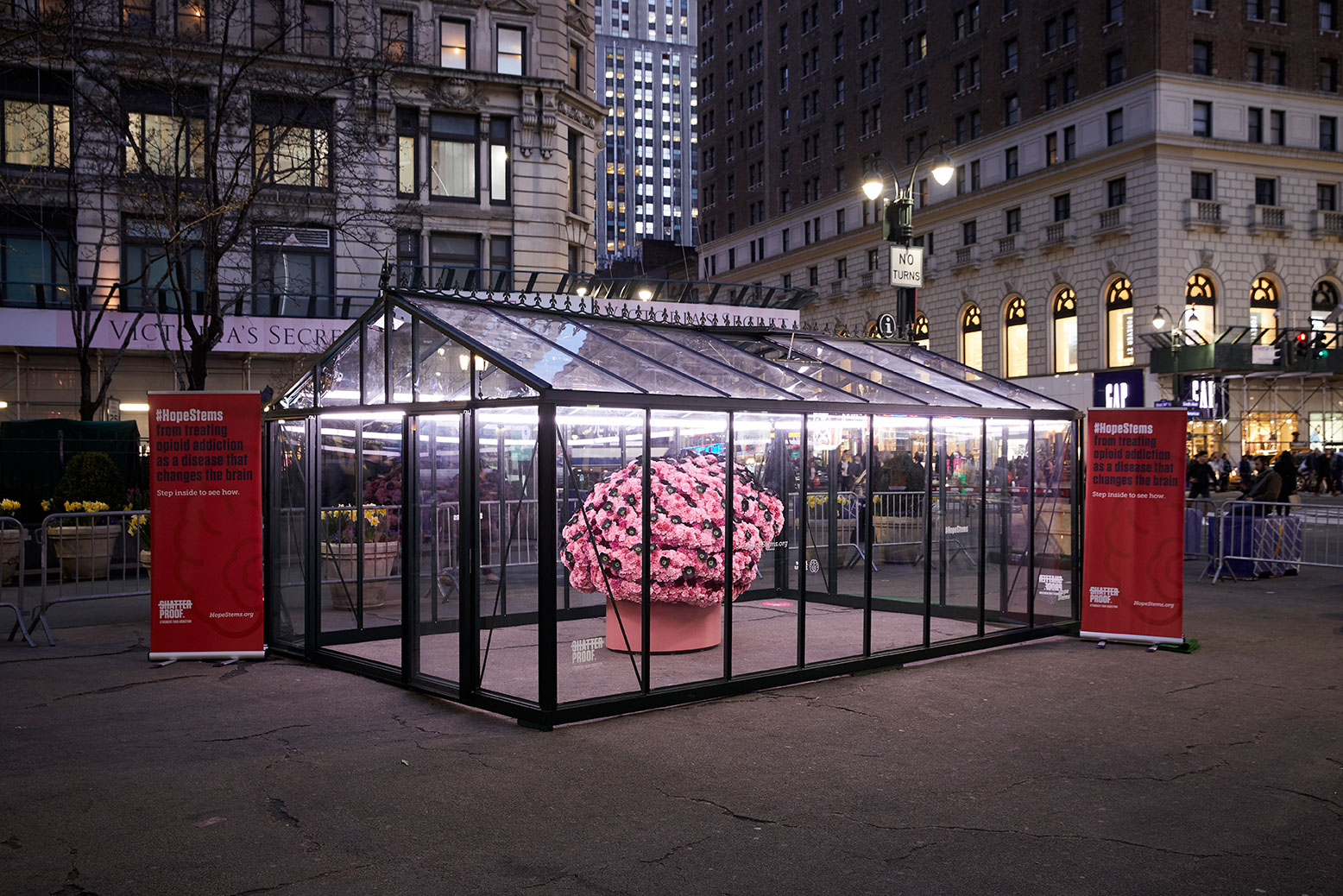McCann Built a Giant Floral Brain to Show Addiction Is a Disease, Not a Moral Weakness
NYC art installation is about reducing stigma
McCann Health has come up with an artful way to illustrate that addiction is a chronic brain disease, rather than a moral failing, and hopefully reduce stigma around it—enabling more people to get help.
The agency created an art installation in New York’s Bryant Park for nonprofit client Shatterproof’s #HopeStems campaign. Situated just outside the Macy’s Flower Show, the installation features a beautiful floral brain, made of 9,000 carnations. Since Tuesday, about 200 handmade black paper poppies have been slowly added to the brain—representing the changes in brain chemistry that opioids cause.
Today, visitors to the installation are being asked to remove one poppy at a time, representing the brain’s ability to recover once addition is stemmed. On every poppy is an anti-stigma message of hope.
“This campaign has the power to not only change the way people think about opioid addiction, but to save lives,” says June Laffey, chief creative officer ay McCann Health New York.
“Opioid addiction is not a weakness. It is a disease that changes the brain. There’s science to prove it. Hope stems from reducing the stigma and speaking with compassion. So let’s all speak with one voice. The more we reduce stigma, the more people will seek treatment and the more lives will be saved.”
“Opioids impact the most complex machine known to humankind—the human brain,” adds addiction expert Dr. Lipi Roy. “Unfortunately, stigma remains a major barrier to care for most people with substance use issues.”
Dr. Roy adds: “As an addiction medicine specialist, I remind people every day of two key points: 1. Addiction is a chronic medical illness, a disease of the brain, where relapse is expected. Addiction is NOT a sign of moral weakness or failure. 2. Most people with addiction, once connected to the appropriate treatment and recovery services, GET BETTER.”



 Events
Events





